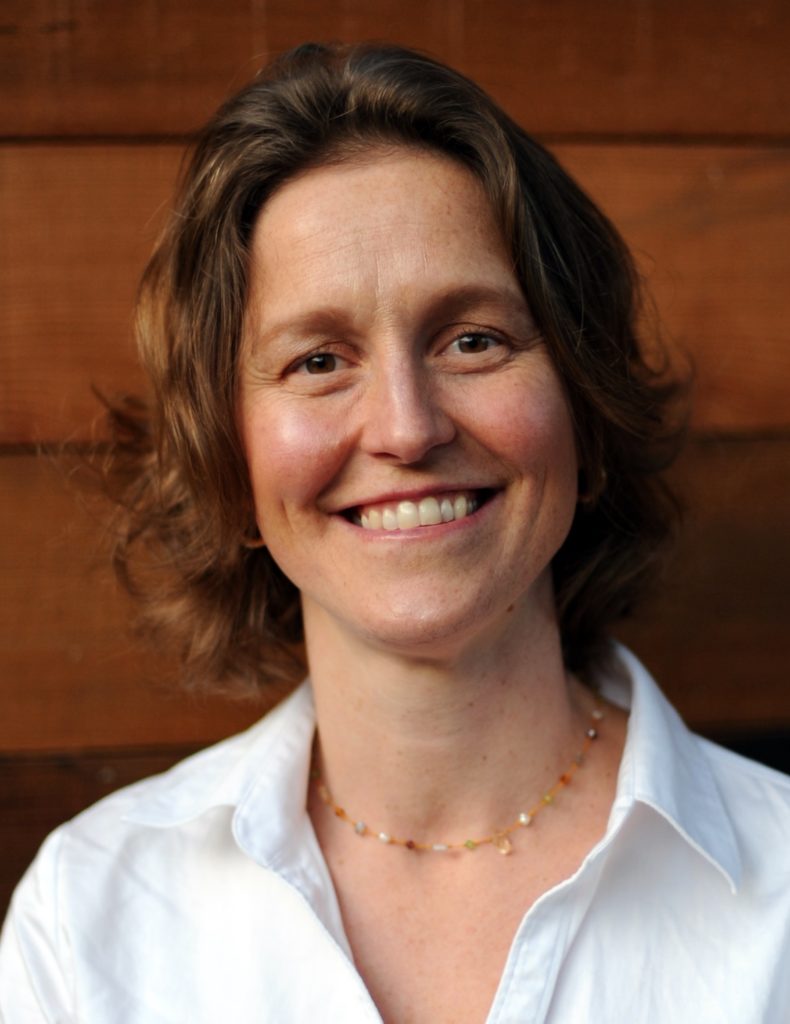Birds may not actually do it, or bees either—fall in love, that is. But prairie voles seem to.

Researchers have long been interested in the species for its tendency to form pair bonds, effectively mating for life. Previous studies pointed to oxytocin, the “love hormone,” as the operative chemical at the heart of vole romance. But a new study out of UCSF found otherwise. When the researchers used CRISPR technology to turn off the voles’ oxytocin receptors, they still formed permanent pair bonds.
According to Emiliana Simon-Thomas, science director of the Greater Good Science Center at UC Berkeley, that doesn’t mean oxytocin doesn’t play a role in love but rather “that there are other pathways that can carry that process.”
As anyone who’s been in love can attest, it’s complicated. To help us get a handle on the subject in time for Valentine’s Day, we turned to Simon-Thomas for answers on questions about the biological basis for love, the different kinds of human love, and unconventional arrangements like polyamory.
This interview has been edited for length and clarity.
There’s an exchange in the movie Catch-22. One guy says he’s in love and another guy says, “You’re not in love. You just think you’re in love.” A third guy says, “What’s the difference?” So, there’s the question: Is being in love all in our heads or does it have a biological basis?
It’s almost the opposite of that example. In other words, you think you’re in love because you’re having physical sensations and your brain is interpreting them: Everybody tells me it’s love, so yes, I am defining it as love. But there’s certainly a biological component.
I think the interesting question is what kind of love are we talking about? Familial love is your feeling for your family members (most of the time)—parents towards their children, particularly infants. There’s romantic love. Infatuation. Very sexually charged kind of experience. There’s companionate love; imagine couples in their seventies holding hands, walking in the park. And then there’s a fourth category called revolutionary love. That refers to everyday experiences where you have a connection with somebody who you don’t even necessarily know that well. So meaning, like, let’s say you and I are at a comedy show, we’re laughing together and having a really trusting, warm conversation, that might be characterized as a kind of experience of love. All contextual factors taken into place, that’s probably how we think about “chemistry.”
How do you measure love?
One of the most common ways to measure anything is to just ask. For example, how much do you love your friends? You can give a 1–10 answer to that. Other ways are biological. For example, to understand familial love, researchers put new moms into an MRI scanner, which measures the level of uptake of oxygenated blood in different brain regions. They show them pictures of their own babies or play sounds of their baby’s vocalizations. There are pathways and structures very deep in the brain that are dedicated to caregiving and nurturance, and those pathways are implicated in that kind of familial love. They’re also implicated in companionate love.
Romantic love also draws on those nurturing pathways, but it also draws on reward and pleasure pathways. There’s a natural pleasure response that happens when we’re sharing affectionate touch with a romantic partner that engages the traditional dopamine reward pathways.
Revolutionary love is based in what’s called biobehavioral resonance. So any human in the presence of another human is physiologically tuned in to that other person. We all are really familiar with contagious yawning, contagious laughter.
I wanted to ask about polyamory. Can you love multiple people at once?
There are researchers who suggest at some level that there are some advantages that polyamorous couples have regarding authenticity and honesty and openness to one another, like a lack of jealousy and compersion, which is feeling joyful at somebody else’s success. Strictly anecdotally, it feels like the limits to polyamory would be logistical more than biological. How do you have time to invest in the kinds of experiences that support companionate love throughout the lifespan? There’s nothing unnatural about polyamory—it just seems hard to maintain.
How does romantic love change?
Traditional reward pathways like novelty. Think about drug abuse: Over time, you need more and more of a substance, and then at a certain point, it’s not that stimulating anymore. So that’s probably the explanation for a romantic love fading. There’s an unfortunate idea that romantic love will persist through some universal force of finding your perfect mate and always loving them that way, when in actuality, maintaining romantic love involves purposeful action and prioritization. The kinds of things that can keep a couple’s romance alive are engaging in activities that are challenging and new together, like a tango class. Trying something like that creates this shared experience that evokes that same energy that might have happened spontaneously during those early days of positivity resonance. Then companionate love is the consequence of repetition. This person, good feeling, this person, good feeling; lots of good repeated experiences of a particular person makes you feel good in anticipation of seeing that person in a way that might be characterized by what we’re calling companionate love.
Does everyone need love?
People who are lonely and isolated die younger, they are more vulnerable to disease, their immune systems function on overdrive, and they often suffer from inflammatory disorders. So not having love is pretty harmful.
Do you think your research has affected how you view love in your own life?
Yeah, particularly the “it takes work” part. I definitely think in the West there’s an expectation that we don’t have to do anything to maintain love. I don’t mean work in a dismal way; I mean work in the way that we might embrace, say, exercise. Choices we make to improve our quality of life are also important in the space of relationship and love.
So are you saying there’s no such thing as a Cupid’s arrow?
The Cupid’s arrow is about that early positivity resonance. I don’t want to say there’s no such thing. It just wears off. Whatever chemical juice is on the tip of that arrow to make you fall in love at that moment, it wears off, and then it’s up to you.





















